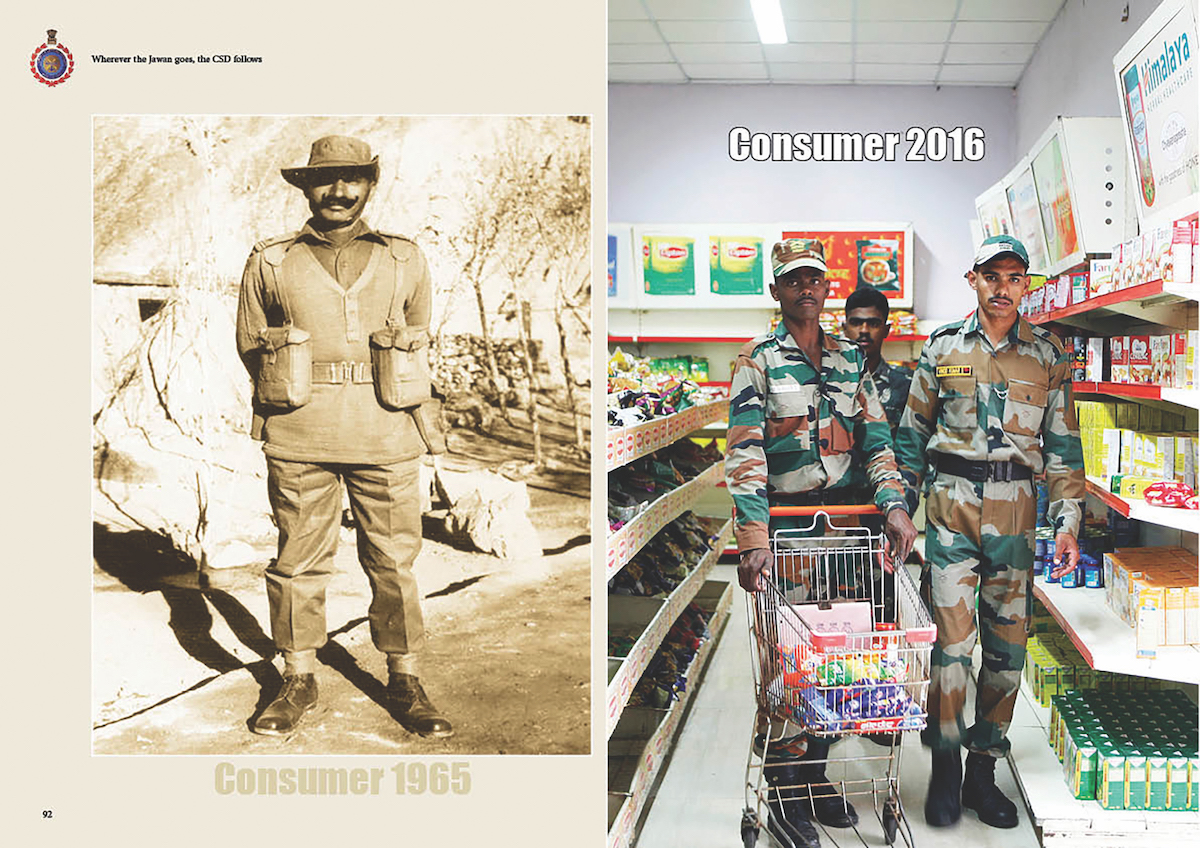Canteen Stores Department (CSD) is a lifeline for many current and former servicemen and women, as well as their families, in India’s armed forces. The organisation provides them with a range of goods at discounted prices, through thousands of ‘unit run canteens’ (URCs) throughout the country.
CSD’s history extends back to the time India was still under British rule. The UK had established the Army Canteen Board in India to deliver canteen services to the British troops. These services were provided through grocery stores run by canteen contractors. In 1927, the Board was replaced by the Canteen Contractors’ Syndicate (CCS).
This organisation operated well into World War II, when its services were in high demand. But when the war ended in 1945, British troops started returning home, and the CCS was dissolved. The following years, however, signalled a new age for India and refuelled the need for a canteen department.
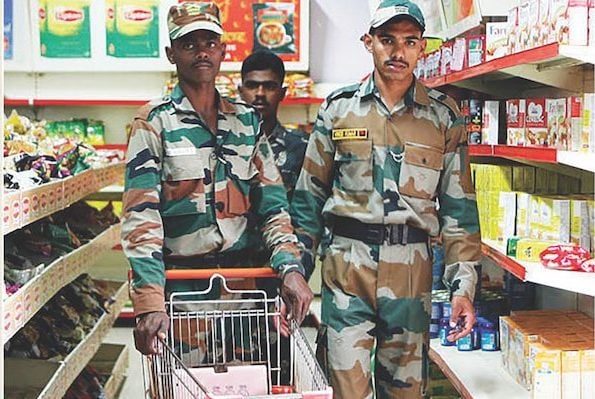
Partition and the rise of CSD
When Britain finally relinquished India in 1947 – after the war had decimated its resources and it was no longer able to control its greatest imperial asset – it decided to split the country into two independent nations, India and Pakistan. Named the Partition, this division into Muslim-majority Pakistan and Hindu-majority India triggered an outbreak of sectarian violence between the two newly formed countries.
Up to two million people were killed and 10–20 million displaced. Added to that was the bitter war over the state of Kashmir, with tensions that continue to this day.
The two warring nations awakened the need for military supply support, and thus the CSD was born. The Indian CSD was set up in 1948. At the time, the government granted it permission to operate for three years as a trial. As a result of its success, CSD was then given a permanent position within the Ministry of Defence.
When CSD started, it had fewer than 200 products in 400 URCs. Some of its major milestones during its first year were establishing depots in the cities of Pathankot (in the state of Punjab) and Srinagar (in the state of Jammu and Kashmir).
These were sites of intense skirmishes between Pakistan and India and it was the first time CSD opened sites directly where the armed forces were deployed. At these sites, the CSD workers provided defence personnel with supplies while being surrounded by conflict, dealing with temperamental weather and a lack of staff.
Over the years, the organisation continued to grow, and it shifted its headquarters to the Adelphi building in Mumbai. This site was on land owned by Sir Shah Nawaz Bhutto, the father of former Pakistani Prime Minister, Zulfikar Ali Bhutto.
Today, CSD stocks more than 4,000 products and has more than 3,900 URCs in 35 depots around India. Its success even caught the eye of foreign dignitaries who visited CSD’s headquarters. These included ministers from Tanzania and Sri Lanka.
Today, CSD stocks more than 4,000 products and has more than 3,900 URCs in 35 depots around India.
Delivering quality products
CSD has now become the largest retail company in India. As a welfare organisation, CSD doesn’t prioritise profit. Instead, the money it makes goes to supporting those in the services. Funding is provided to schools, hospitals, war widows and homes for the disabled. The organisation’s motto is to ‘Service the Services’ and it ensures it has all the daily necessities that service members need.
CSD’s products are divided into seven main categories: toiletries and cosmetics; household appliances; footwear, luggage, general use items; wrist watches; liquor; food and medicine; and cars and two-wheelers.
It has evolved its product range over the past 10–15 years to better cater to its customers’ needs. With goods and services being launched at a much faster rate, CSD ensured it collaborated with multinational corporations and large businesses to have products available at the same time as traditional stores – albeit at lower prices.
While prioritising the latest items, the company also ensures it delivers high-quality products to its customers. Each of its products goes through stringent quality control measures before it is introduced. Over the past year, the company received accreditation from 48 testing labs and it increased its interaction with the Food Safety and Standards Authority of India, which regulates food safety in the country.
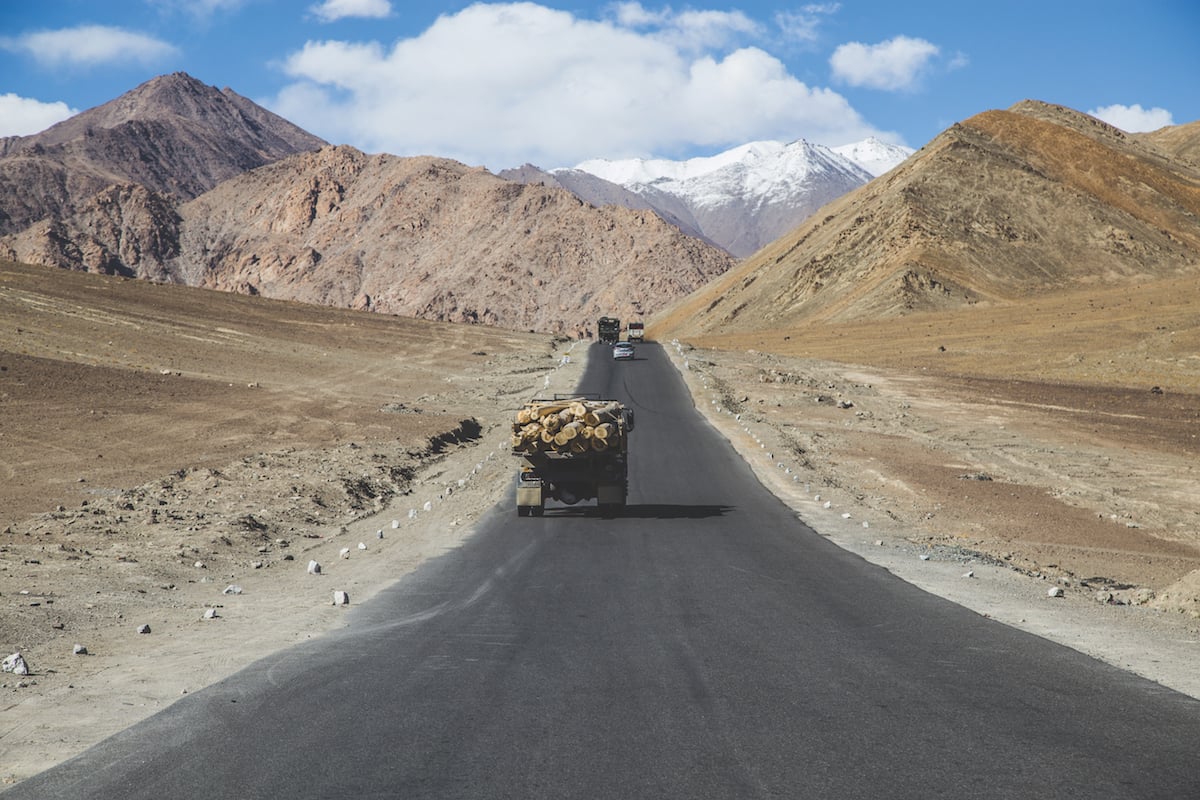
CSD believes quality control will be the ‘norm of the future’. As an extension of this, CSD identifies and removes counterfeit products and less popular brand names from its production line. The company recently deleted 1,200 items based on their poor quality and lacklustre sales.
It was a tough decision but one that was necessary for the company to retain its commitment to quality. Moreover, CSD launched an app for customers to raise concerns about its products, should they have an issue. The app also informs regulatory authorities about the status of the complaint to ensure it gets resolved.
CSD believes quality control will be the ‘norm of the future’.
With changing consumer patterns over the years, CSD has had to stay on top of its game to get the best products available in its stores. In the past, India’s service men and women would only consider the least expensive product. Nowadays, they have more disposable income. Further, their families’ aspirations have broadened, meaning they are attracted to well-known, high-quality brands.
Brands including Nestle, Unilever and Proctor & Gamble are well established in the consumer market and CSD ensures it works closely with them. These brands also follow stringent quality control processes and certifications throughout their manufacturing, which adds another level of credibility that CSD wants to maintain.
In addition, these brands invest significantly in marketing and advertising which means better brand recognition from customers. Thus, by stocking their products, CSD can attract more customers.
Creating ethical practices
CSD operates through its URCs, also referred to as CSD Canteens. These are spread across busy and remote locations in India to better reach the company’s clientele. Before 1948, URCs were run by contractors. The current model of URCs was first introduced by General Kodandera Subayya Thimayya.
He thought URCs should not be run by independent contractors. He believed that by removing these middlemen, CSD would save money that could be used to help the soldiers. Despite some opposition, the government eventually approved the idea.
Now, URCs are strategically placed near Area Depots – key hubs of activity for the services for– and are registered customers of CSD. Being registered allows URCs to purchase stores from the CSD Area Depot closest to them. This allows easier logistics support and more efficient store management.
CSD also provides loans to URCs so that that they have enough inventory. When they are needed in very remote areas, URCs operate out of a mobile van or truck. They carry the basic yet necessary items that personnel need.
CSD has a commitment to socially responsible activities. One thing it emphasises heavily is a zero-tolerance policy on corruption. It promotes ethical business practices by banning bribes and other corrupt activities in its business.
Further, the company makes a strong contribution to the environment by looking at ways in which it can recycle and reuse its packing material. While the company acknowledges that this ‘reverse logistics’ is expensive, it knows it is necessary for sustainability.
Another important area the company is working on is encouraging its suppliers to shift their manufacturing centres to India. With the number of people in the country and the broad range of skills they bring, CSD sees the massive benefits local manufacturing can bring. Not only will this generate employment in the country, it will also improve research and design activities.
CSD employs hundreds of workers to run its canteens, from storekeepers right up to the depot managers who run its warehouses. One of its biggest challenges is ensuring the service quality is consistently high across its URCs. To this end, the company has implemented people development programs to strengthen its workers’ skills.
Further, every three to four months, the company gathers all its depot managers together to hear their concerns. It also holds various sessions with guest speakers to try and improve staff processes and thinking. The company considers this a good investment as employees are recruited under different norms and require different levels of teaching.
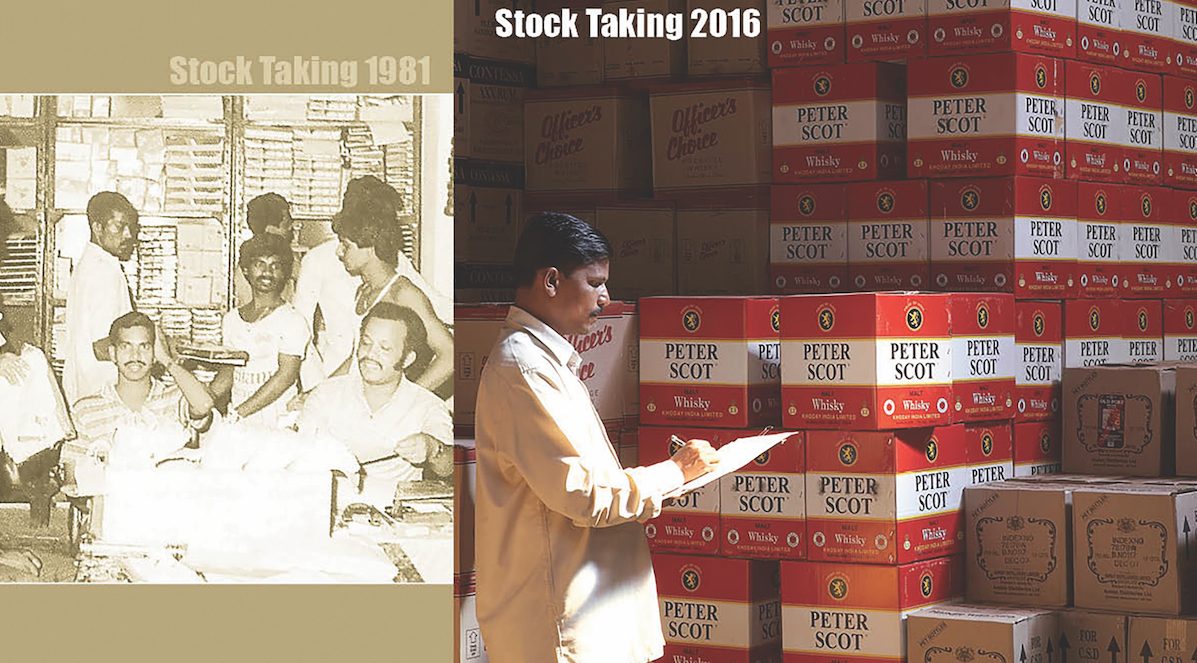
Upgrading the department
With a business that is more than 70 years old, CSD constantly has to constantly upgrade its equipment, particularly transportation. While the company’s warehouses are in a humidity-controlled environment, transportation conditions are harder to maintain.
With India’s climate being hot and humid for most of the year, this can adversely affect CSD’s products. Thus, CSD plans to bring in top transportation companies to ensure products that require temperature-controlled conditions are transported in air-conditioned vehicles.
In addition, it wants operations to move efficiently, by speeding up the loading/off-loading processes so that trucks are not lined up outside the depots for days. It has also considered outsourcing its transportation and warehousing operations.
Another important phase for CSD is to enhance its automation capabilities. It is set to automate its whole environment – including its head office, depots and URCs – so that it has visibility of all its stock. This will make CSD’s processes more efficient by reducing excess inventory in depos.
Ecommerce is another venture CSD is looking into to give customers the option of ordering products online. Through this process, individuals will be able to enter a designated URC, login through a verification process, order their products and have the items delivered to their home.
This will be a last mile delivery service and CSD has already reached out to a couple of businesses from different sectors to support the initiative.
Some of these already have products ready to deliver to homes such as furniture, computers or electronic goods. But for now, CSD acknowledges there will still be a need for its brick and mortar units for customers who prefer the touch/feel experience of shopping. Thus, it will incorporate a mix of both home delivery and standard pickup shopping.
A strong partnership
CSD receives strong support from its key suppliers including luggage manufacturer, VIP Industries; alcoholic beverage supplier Diageo India; power generation company Crompton Greaves India; and appliances company, Whirlpool India. CSD considers it suppliers as partners to the business. Working with these suppliers has provided significant benefits for CSD, primarily when it comes to new stock.
For example, by interacting with market-leading companies such as Johnson & Johnson, CSD can launches new products at the same time as the manufacturer. There is typically a lag between a product launch the market and its entry onto CSD shelves for between six months and a year. But having those supplier relationships means CSD can have the latest products on its shelves straight away.
Further, the organisation has quarterly meetings at each CSD depot to keep on top of changing consumer needs. It also has an annual All India CSD Officers Conference to review its practices, policies and procedures when. Officers from several depots gather and discuss ways to enhance its supply chain.
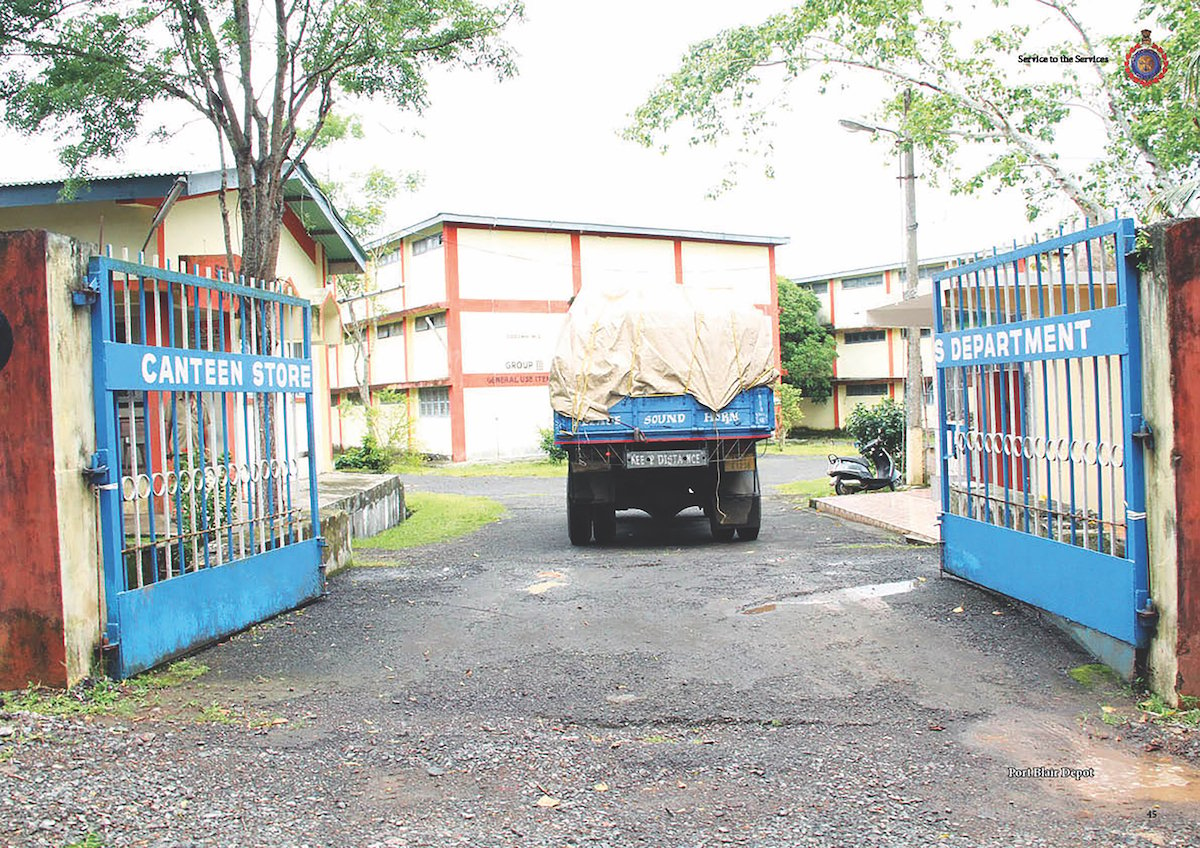
Marching on
CSD plans to open more depots in the future, particularly in the states of Chhattisgarh and Odisha. With these, the company hopes to increase accessibility of its products throughout India. In addition, CSD aims to improve its after-sales service at all its locations.
It currently provides after-sales service directories to inform customers where they can reach dealers or service centres. And a boost to service locations will mean faster maintenance activities and replacements of damaged items.
Internally, CSD wants to reduce its time to market by driving up local supplies and direct deliveries to its depots. Plus, it wants to ensure fresh stock is always available.
Other objectives in the works for CSD include additional training for its staff. It has established staff development activities at several institutions including the Administrative Staff College of India, Institute of Secretariat Training and Management and Tata Management Training Centre.
Finally, CSD plans to take its canteen services beyond the armed forces. This will mean several new opportunities for the organisation that are yet to come.

